Drugs you didn't notice in video games
The games that run on the world's most notorious substances
Holy Glasses (Castlevania: Symphony of the Night) work as the equivalent of LSD
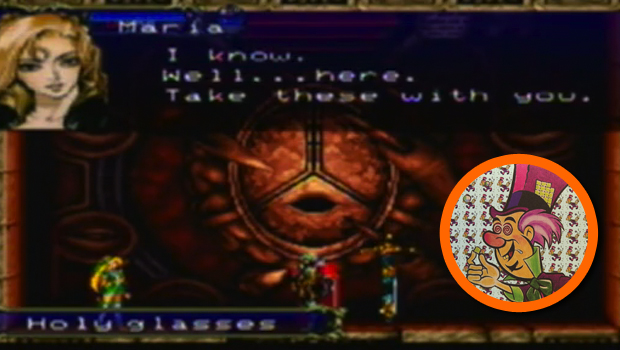
When your hero is on a quest to murder his father and maybe burn his house down along the way, drugs are a sensible thing to leave out of the equation. Most mushrooms in Symphony of the Night, for instance, are of the harmless edible variety, and the rest are deadly poisonous. This is Konami, teaching you valuable lessons about not eating dangerous things. Educational!
However, Alucard's rather more trusting with man-made substances. He'll eat a tab of paper that transports him across space and time; given the chance, he'll toy with the even more LSD-esque Holy Glasses, which grant visions of strange glowing orbs and allow users to experience the world afresh.
Everything in the LSD world of the Upside-Down Castle is topsy-turvy and crazy-colored, as our hero experiences visions of forgotten spiritual trauma and familial unease. The founder of Alcoholics Anonymous, dosed with LSD during his own substance-abuse therapy, reported similar experiences; nowadays, doctors prefer the less salacious but somewhat safer method of talking about things. Luckily for players, Alucard apparently doesn't believe in therapy.
Musou (Dynasty Warriors series) certainly reminds us of PCP
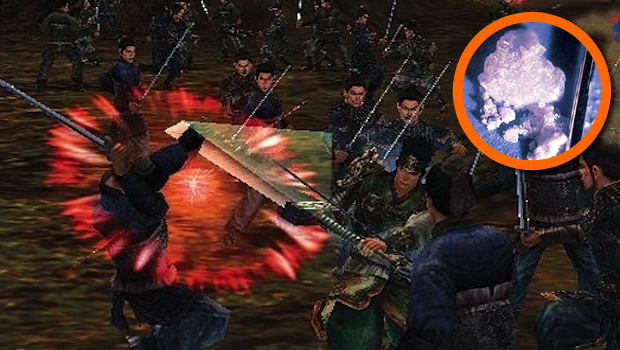
The usual joke when talking about Dynasty Warriors is to say, those games are worse than Madden, with their yearly updates on the same formula. But there's an important difference: whereas Madden is named after the guy sometimes credited with bringing steroids to pro football, and hence might involve some use of performance enhancements, Dynasty Warriors is definitely about dudes who are absolutely ripped on PCP.
Phencyclidine, aka PCP or Angel Dust, became notorious in the 70s and 80s for fueling a spate of ridiculously violent street crimes and incidents of self-harm: besides removing inhibitions and turning the world into a dizzying blur (fix that camera already, Koei!), the drug can reduce users' senses of pain and empathy alike. Striding into a crowd of enemies to perform seemingly-impossible acts of violence? No need to invent a supernatural warrior's instinct to explain that: Liu Bei and friends are just hopped up on good old-fashioned Angel Dust.
P-Wing (Super Mario Bros 3) has a lot in common with meth
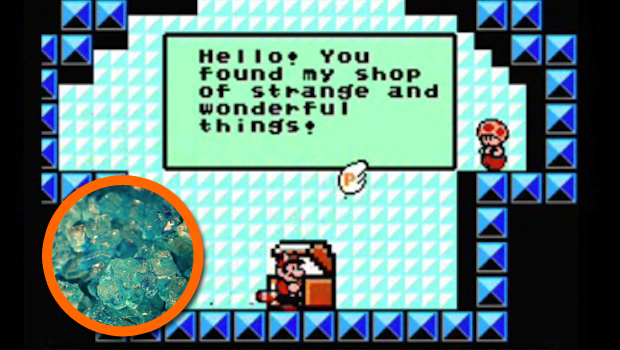
Travel far enough into Mario 3's boonies and you're bound to come across a shack selling these dodgy little dealies, which have a common (outside the US, at least) street name for crystal meth stamped right onto them. And, like most backwoods P/meth dealerships, the place won't last long before it's vacated or abruptly wiped off the map.
The item itself helps players get to the game's highest regions, and can be a proper trial to wean yourself off of; in fact, if our high school drug educations are to be trusted, the relatively common Raccoon Leaf is just a gateway powerup to the harder, more intense P-Wing.
We tried to decipher any hidden metaphorical significance to the Leaf itself, but nobody who offered to explain this particular joke could get any further than complaining of extreme peckishness and marveling at how the human hand is pretty amazing if you, like, really look at it.
T-Virus (Resident Evil series) sounds a lot like bath salts
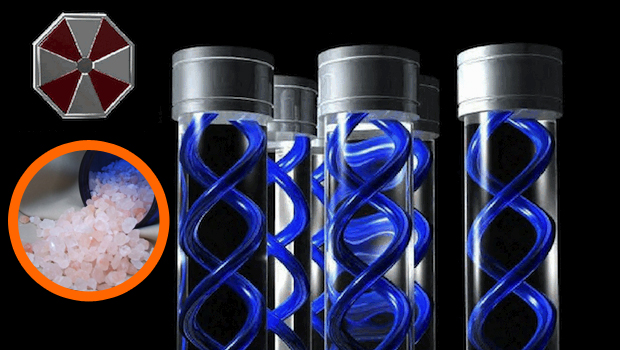
Remember when that dude bit that other dude's face off in Florida earlier this year, and the entire Internet freaked out because that was the sort of thing zombies would do and zombies are awesome?
When everyone thought it was because of Bath Salts, the whole story gained a whole new level of meme-readiness: not only was there something even scarier than zombies, but you could become one (if you were particularly stupid about ingesting mystery substances).
By the time it transpired that Bath Salts weren't even to blame for that particular attack, it was too late: the compound (which, zombies or no zombies, tends to be pretty bad news) had passed into geek legend. There it joins substances like Resident Evil's T-Virus--which has a similar habit of turning regular people into freakout monsters, then forcing awkward discussions about whether or not they're zombies, and whether or not that makes a difference when they're trying to eat your face.
Tears of Light (The Legend of Zelda: Spirit Tracks) shares the properties of Devil's Breath
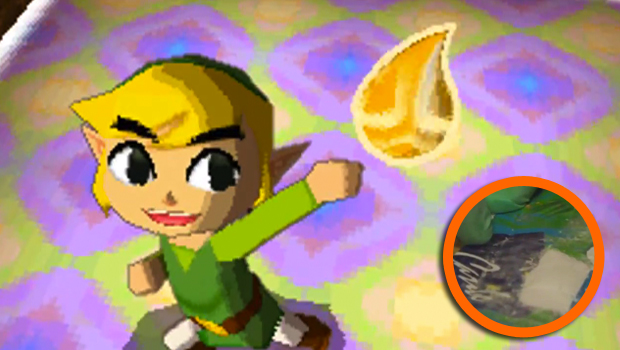
As drug tolerance goes, Hyrule is Amsterdam with less backpackers: magic mushrooms grow wild, smart-brews are sold in the Town Square, everyone's hammered on milk, and the world's greatest hero is a kid who thinks his hat tells him secret messages. But there's one substance even the Hylians won't touch: Spirit Tracks' Tears of Light.
Exposure to the Tears of Light drains victims' free will while leaving them fully conscious and able-bodied. This is the same effect gained by exposure to Scopolamine, aka Devil's Breath, aka the world's scariest drug.
Scopolamine-controlled victims speak of helplessly emptying out their own apartments and bank accounts while under the drug's influence. The Tears of Light, similarly, have been used to compel Phantoms to aid in emptying out their own dungeons, wading uncontrollably into pits of lava at the behest of their impish tormenter. With heroes like this, who needs villains?
Want another hit?
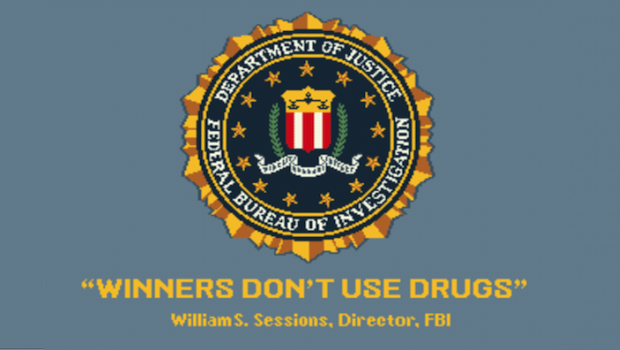
Thanks for joining us for this spurious romp through the seedy subtext of your favourite games and ours. In closing, we'd like to stress that (a) we don't actually think Shigeru Miyamoto is trying to get you hooked on meth; and that (b) neither are we. Who's going to read our listicles if you're lying in a gutter with your teeth falling out?
But with that out of the way, the night is young and you are ingenious - so what's the most notorious substance you reckon you've found hidden in-game? And did you inhale?
Weekly digests, tales from the communities you love, and more


